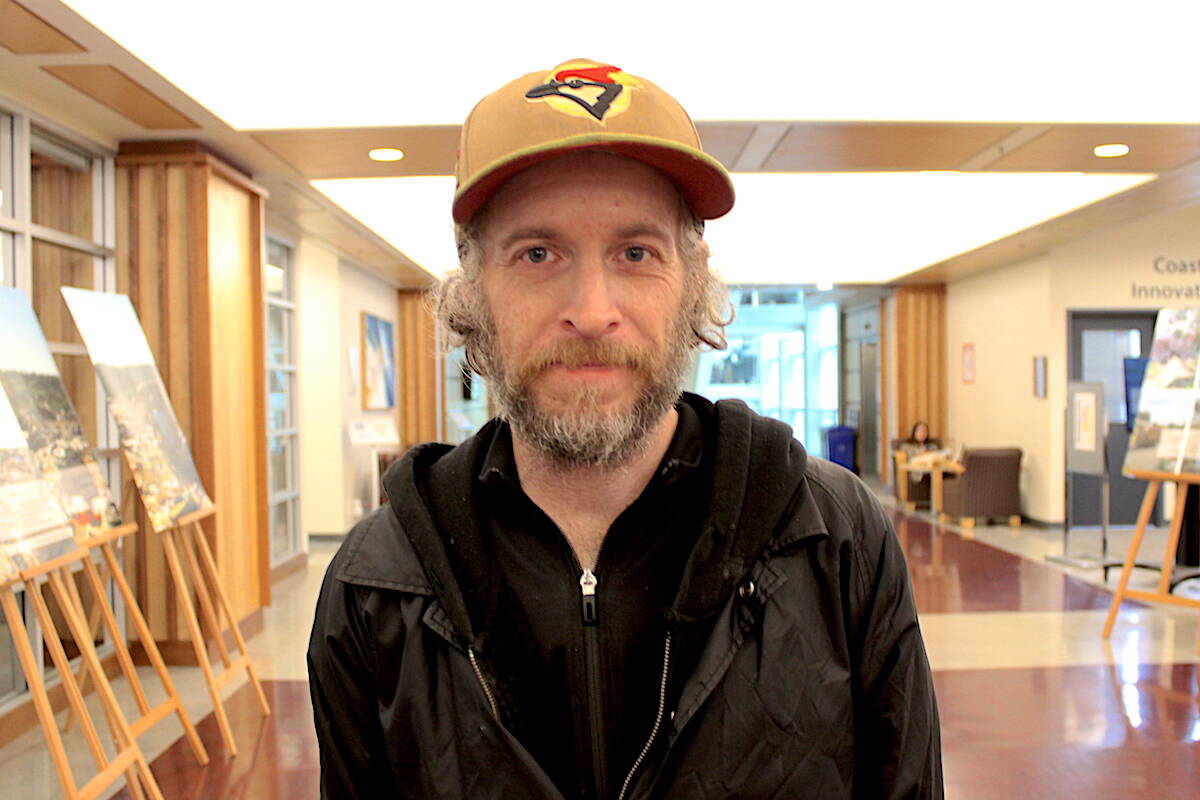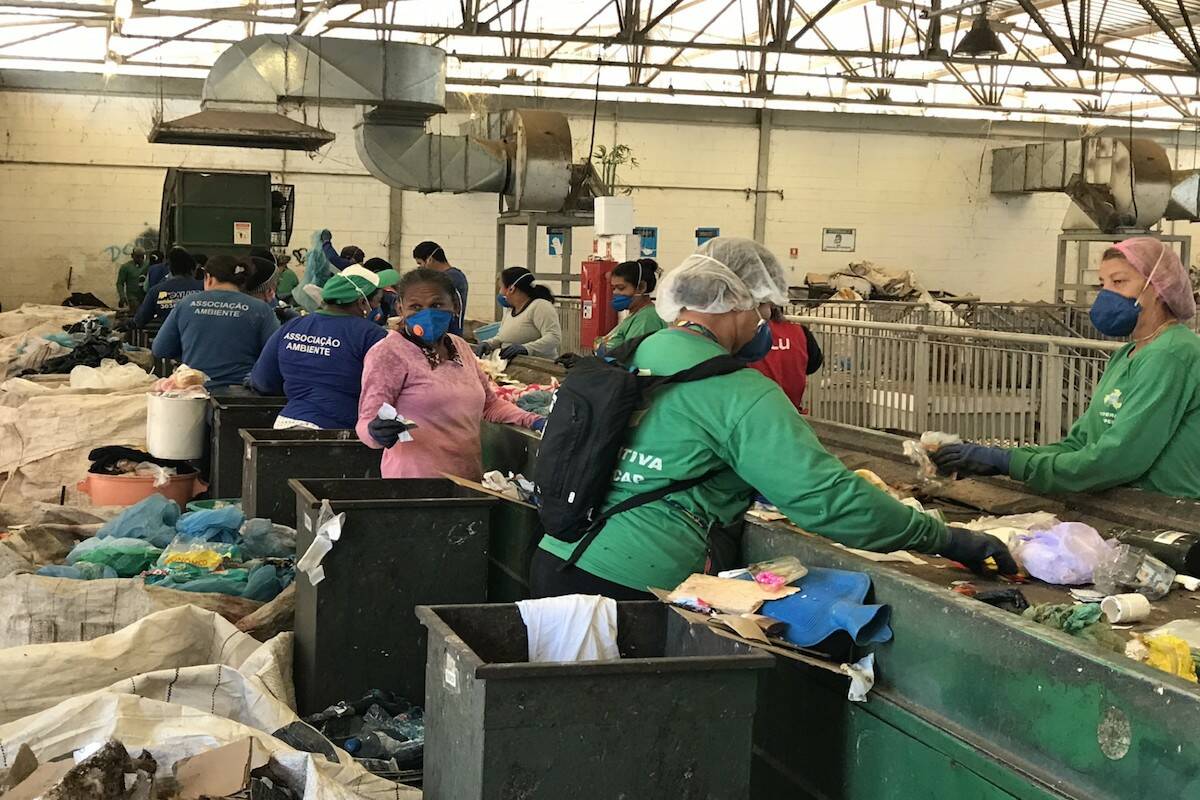After becoming homeless, Ryan Thomas had to weigh the few income-earning options available to those in his situation.
He always had an interest in environmental pursuits, spurred in part by Michael Jackson songs highlighting the ailing Earth, so deciding to start collecting refundable recyclables just clicked in his mind.
“It was a no brainer to pick it up,” Thomas said.
He then jumped on the chance to join the upstart Diverters’ Foundation, a Victoria group that creates economic opportunities for recyclable collectors through a number of programs that ensure materials stay out of the landfill.
“It’s life changing, I’m hoping it’s going to give me the opportunity to get sustainable income and do something for society that I’m proud of,” Thomas – who has now been with the Diverters for several years – said at the University of Victoria’s library on Wednesday (March 27).
He was there for a roundtable discussion where the Diverters shared its waste-cutting initiatives and experiences with students and faculty members.
One of the foundation’s programs coordinates with business and residents to arrange scheduled bottle and can pick-ups. It’s seen results such as two residential buildings cutting their waste in half, but also aims to build relationships that reduce the stigma tied to diverting.
Jutta Gutberlet, a UVic geography professor who’s been with the Diverters’ board since its inception, has had the group’s members speak to her classes about their work, its environmental impact and how it supports collectors’ livelihoods.
One of her students teamed up with the group on its Coffee Cup Revolution, which raised awareness about the quantity of disposable coffee cups being used in B.C. and how they lack a refund system.
The Diverters campaigned against Victoria’s ultimately shelved fee for disposable cups as it said a 25-cent levy was too small to thwart customers from getting a cup and the money was just going back to shops. The society of “binners” has instead been advocating for a system mirroring their pilot initiative, where coffee cups would have a refund like cans or bottles so diverters can financially benefit, and ensure cups get recycled as intended.
Another of Gutberlet’s students is teaming with the group on a project where diverters would pick up perfectly good food that was set to be thrown out and take it to organizations who can distribute it to those in need.
“They could be an important piece in transporting the food from one place to another where it’s needed,” the UVic professor said.
Greater Victoria’s 100 binners pales in comparison to countries like Brazil, where Gutberlet said such waste-sorting programs are much more widespread and up to 800,000 diverters there are keeping those recycling systems going.
“Without them, there would be no recycling, so they are fundamental actors in the waste management system,” she said.
In partnering with local events, the Diverters have provided recyclables sorting at Victoria’s Canada Day festivities and showed attendees of the annual Moss Street Paint-In how to properly dispose of their waste in the corresponding bins.
Those events also provided interaction and connection with the wider commnuity at a time Gutberlet said the stigma associated with diverting remains one of the largest barriers to the work. She hopes more events and festivals team up with the foundation so dialogue between binners and the public can flourish.
“It just just dignifies their life so much more because they are environmental stewards.”
For Thomas, the Diverters gave him a career he loves and he hopes to segway into the restoration and salvation business by finding creative uses for scrapped material. During the hours he spends diverting every day, he sees tossed items that can be reused or are still working.
“We have a beautiful playground out there (in the environment) and we’re just throwing it all away,” Thomas said.
“I want to find a way to do my part.”
READ: Victoria’s reuse-inspired art supply thrift store finds new downtown home


